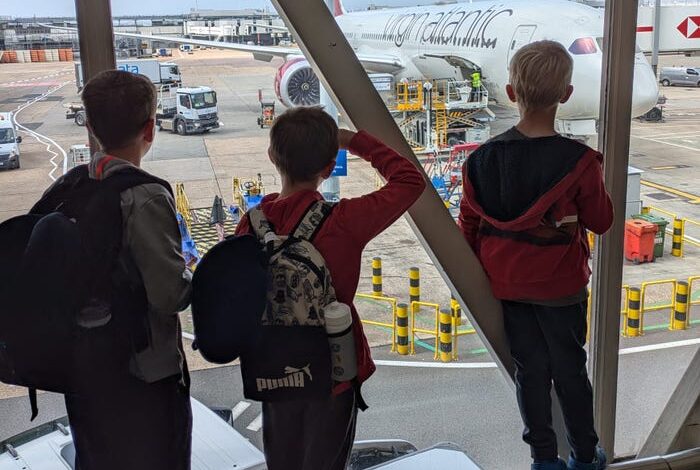US Expat Struggles with Family Separation After 14 Years in Wales

UPDATE: A US expat in Wales shares her emotional journey of raising children far from home, highlighting the significant challenges of family separation after 14 years abroad. The author, who moved from the US to Wales in her early 20s, reflects on the unexpected hardships she faced while navigating life as a parent away from her family.
The author’s story resonates as many families grapple with similar challenges in our increasingly globalized world. She emphasizes the deep longing for family support during pivotal moments, such as the death of her grandmother, which she experienced from thousands of miles away. “I heard about it via a phone call in the middle of the night,” she recalls, reflecting on the emotional toll of distance.
While the physical separation is daunting, the author has found ways to maintain connections. She frequently utilizes platforms like Rebtel, WhatsApp, Zoom, and Skype to communicate with her parents. “During the pandemic, I would open Zoom to talk to family, who would entertain the kids while I cleaned,” she shares. This adaptation highlights the innovative ways families bridge the gap across continents.
The challenges of international communication are compounded by the five-hour time difference between Wales and the US. The author navigates this by scheduling calls during optimal times, ensuring her children can connect with their grandparents. Her eldest son, now 11, has joined the conversation through texts, adding a new layer to their family interactions.
Gift-giving has become a significant method for maintaining ties, with the author’s parents sending presents to her children. Initially overwhelmed by the influx of packages, she has come to appreciate these gestures as vital connection points, stating, “It’s my way of showing them I am thinking about them when I can’t be close.”
Traveling back to the US presents its own hurdles. The author notes that after having three children, managing travel logistics became increasingly complex. “The price of international travel is astronomical,” she admits, underscoring the financial strain this places on families separated by distance. Despite these challenges, she continues to prioritize visits, aided by family members who occasionally assist with travel costs.
A recent development in her family dynamic has brought some relief. Her sister has moved closer, to London, allowing for more frequent visits. “This has been absolutely lovely for my boys and me,” she says, illustrating how proximity can ease the burden of separation.
As the author reflects on her family’s future, she expresses concern for her aging parents. “I worry about how we will maintain connection as they age,” she states, emphasizing the reality that her parents may no longer be able to travel as they grow older. To prepare for potential emergencies, she is setting aside funds for last-minute flights to ensure she can be there when needed.
Despite the complexities of life as an expat, she does not regret her choice to live in Wales. However, she candidly acknowledges the challenges that come with such a significant life decision, wishing she had been better prepared for the emotional and logistical hurdles.
Her story serves as a poignant reminder of the sacrifices many make for love and family, and the ongoing struggle to stay connected in an increasingly divided world. As families continue to navigate the intricacies of international living, the emotional impact of distance remains a pressing reality.
This developing story sheds light on the human experience of family separation and the creative solutions families adopt to sustain their bonds, even when oceans apart.






